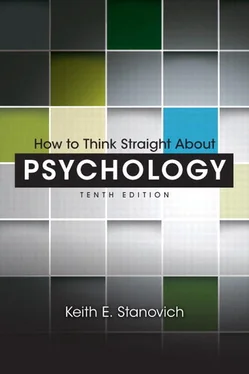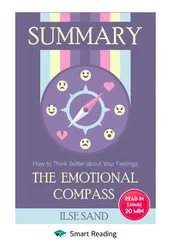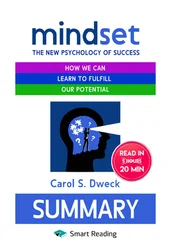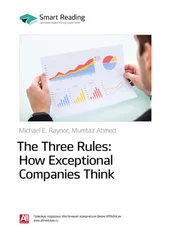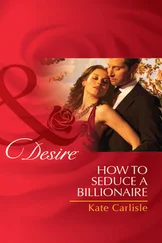In fact, our way of operating in everyday life might be greatly improved if we could use the falsifiability principle on a personal level. This is why the word liberating was used in the opening sentence of this section. It has a personal connotation that was specifically intended—because the ideas developed here have implications beyond science. We would have many fewer social and personal problems if we could only understand that, when our beliefs are contradicted by evidence in the world, it is better to adjust our beliefs than to deny the evidence and cling tenaciously to dysfunctional ideas.
How many times have you been in an intense argument with someone when right in the middle—perhaps just as you were giving a heated reply and defending your point of view—you realized that you were wrong about some critical fact or piece of evidence? What did you do? Did you back down and admit to the other person that you had assumed something that wasn’t true and that the other person’s interpretation now seemed more correct to you? Probably not. If you are like most of us, you engaged in endless rationalization. You tried to extricate yourself from the argument without admitting defeat. The last thing you would have done was admit that you were wrong. Thus, both you and your partner in the argument became a little more confused about which beliefs more closely tracked the truth. If refutations never become public (as they do in science), if both true and false beliefs are defended with equal vehemence, and if the correct feedback about the effects of argument is not given (as in this example), there is no mechanism for getting beliefs more reliably in synch with reality. This is why so much of our private and public discourse is confused and why the science of psychology is a more reliable guide to the causes of behavior than is so-called common sense.
We perhaps would find it easier to change our beliefs in the face of evidence if we understood how historically contingent our beliefs are—that is, how much they simply result from the accident of where and when we grew up. Research indicates, though, that this is insufficiently appreciated by many people. In my own lab we have collected data from questionnaires designed to assess people’s ability to appreciate the historical contingency of their beliefs. One item on this questionnaire is the following statement, to which the subject must agree or disagree strongly, moderately, or mildly: “Even if my environment (family, neighborhood, schools) had been different, I probably would have had the same religious views.” Religion of course is the classic case of an environmentally contingent belief (Christianity is clustered in Europe and the Americas, Islam in Africa and the Middle East, and Hinduism in India, etc.). Nevertheless, in several studies, my colleagues and I have repeatedly found that roughly 40–55% of a university student population will deny that their religious views are conditioned in any way by their historical circumstances (parents, country, education).
Why the falsifying attitude is useful in science itself is that, particularly in the early stages of investigating a problem, science advances by ruling out incorrect hypotheses rather than immediately zeroing in on the perfect theory. In fact, in many domains of life this is often the case as well. It is often difficult to specify what the best type of performance might be, but performance errors are much easier to spot. Essayist Neil Postman (1988) points out that doctors would find it hard to define “perfect health” but, despite this, they are quite good at spotting disease. Likewise, lawyers are much better at spotting injustice than at defining “perfect justice.” The falsifying attitude is useful to scientists for just this reason. Particularly in the early stages of an investigation, a focus on what is wrong—on eliminating incorrect beliefs—is often a very fruitful approach for a scientist to take.
Many scientists have attested to the importance of understanding that making errors in the course of science is normal and that the real danger to scientific progress is our natural human tendency to avoid exposing our beliefs to situations in which they might be shown to be wrong. Scientists must avoid this tendency, and Nobel Prize winner Peter Medawar (1979) urged them to avoid it by remembering that “ the intensity of the conviction that a hypothesis is true has no bearing on whether it is true or not ” (p. 39; italics in original).
Here is a way of thinking about what Medawar is saying. On his show on October 17, 2005, comedian Stephen Colbert coined the term “truthiness” (Zimmer, 2010). Truthiness is the “quality of a thing feeling true without any evidence suggesting it actually was” (Manjoo, 2008, p. 189). What Medawar is saying is that science rejects truthiness. This often puts science at odds with modern society, where truthiness is more prevalent than ever.
Many of the most renowned scientists in psychology have followed Medawar’s advice—“the intensity of the conviction that a hypothesis is true has no bearing on whether it is true or not.” In an article on the career of noted experimental psychologist Robert Crowder, one of his colleagues, Mahzarin Banaji, is quoted as saying that “he is the least defensive scientist I know. If you found a way to show that his theory was wobbly or that his experimental finding was limited or flawed, Bob would beam with pleasure and plan the demise of his theory with you” (Azar, 1999, p. 18). Azar (1999) describes how Crowder developed a theory of one component of memory called precategorical acoustic storage and then carefully designed the studies that falsified his own model. Physician Jerome Groopman (2009) describes how practical and useful the falsifying attitude is in the process of medical diagnosis: “So a doctor learns to question the quality and significance of the data he extracts from the medical history. . . . The most instructive moments are when you are proven wrong, and realize that you believed you knew more than you did, wrongly dismissing a key bit of information that contradicted your presumed diagnosis or failed to consider that the patient had more than one malady” (p. 26).
Centuries before Darwin, Aristotle observed that “It is the mark of an educated mind to be able to entertain a thought without accepting it.” More humorously, the economist John Maynard Keynes illustrated the falsifying attitude when, during the Great Depression, he replied to a critic, “When the facts change, I change my mind. What do you do, sir?” (Malabre, 1994, p. 220).
But the falsifying attitude doesn’t always have to characterize each and every scientist for science to work. The unique power of science to reveal knowledge about the world does not arise because scientists are uniquely virtuous (that they are completely objective; that they are never biased in interpreting findings, etc.) but instead it arises because fallible scientists are immersed in a process of checks and balances—in a process in which other scientists are always there to criticize and to root out the errors of their peers. Philosopher Daniel Dennett (2000) has made the same point by arguing that it is not necessary for every scientist to display the objectivity of Robert Crowder. Dennett stresses that “scientists take themselves to be just as weak and fallible as anybody else, but recognizing these very sources of error in themselves and in the groups to which they belong, they have devised elaborate systems to tie their own hands, forcibly preventing their frailties and prejudices from infecting their results” (p. 42). The strength of science comes not because scientists are especially virtuous, but from a social process where scientists constantly cross-check each others’ knowledge and conclusions.
Читать дальше
